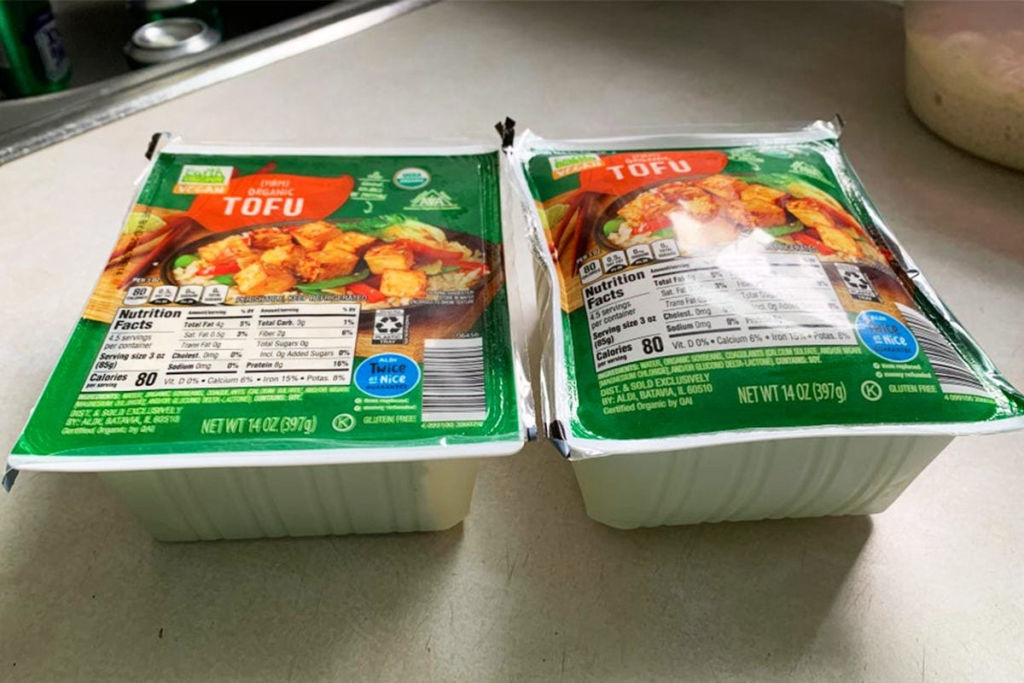We’ve all seen it—a bag of chips so puffed it feels like a balloon, or a container of cheese that looks suspiciously swollen. While your first instinct might be to assume something’s wrong, not all bloated packaging is a red flag. In fact, for some foods, that extra air is intentionally added as part of a carefully designed preservation process.
Take chips, for example. That puffiness isn’t random—it’s nitrogen gas. Harmless, tasteless, and odorless, nitrogen cushions the product during shipping and prevents oxygen from spoiling the food. Without it, you’d likely end up with a bag of crumbs instead of crispy, intact chips.

Why Some Foods Are Sealed Without Air
While snack foods benefit from extra cushioning, perishable goods like cheese, sausages, and deli meats take a different approach: vacuum sealing. By removing oxygen, manufacturers make it harder for aerobic bacteria to survive, extending shelf life and maintaining freshness. In some cases, modified-atmosphere packaging is used to balance freshness with safety, especially for items like ready-to-eat meals.
Video: Video Smart Food Packaging
When Puffiness Means Trouble
Not all bloated packages are safe. Perishable foods that aren’t normally packed with air—like fresh cheese, processed meats, or ready-made meals—shouldn’t appear swollen. Bacteria that cause spoilage produce gas, which can cause packaging to expand. This can signal contamination or improper storage, even if the expiration date hasn’t passed.
In rare cases, fermentation in certain dairy products can cause puffiness without making the product unsafe—but unless you’re certain, it’s better to treat unusual swelling as a warning sign.
Foods Most Prone to Problematic Bloating

- Cheese and Dairy Products – Cottage cheese, yogurt, and soft cheeses can bloat quickly if contaminated.
- Sausages and Processed Meats – Vacuum-sealed meats shouldn’t be swollen; if they are, bacterial growth could be to blame.
- Canned Goods – A bulging can is a clear hazard; never consume it.
- Pre-Packaged Ready-to-Eat Meals – These are sealed tight for a reason; swelling means they may not be safe.
How to Handle Suspicious Packaging

- Avoid buying visibly swollen packages of perishable items.
- Store food properly—refrigerate perishables immediately and keep canned goods in a cool, dry place.
- Trust your senses—if a product smells off or looks unusual after opening, don’t eat it.
- Check expiration dates before consuming stored goods, especially if they’ve been sitting for a while.
The Safety–Quality Connection
While bloated packaging isn’t always a danger sign, it’s a clue you shouldn’t ignore. Understanding the difference between intentional puffiness (like nitrogen-filled chip bags) and dangerous swelling in perishable goods can protect you from foodborne illness.
Conclusion: Know the Signs, Stay Safe
Video: Do Not Consume Bloated Or Swollen Food Packages
Bloated food packaging can mean two very different things—it’s either a deliberate measure to preserve quality or a sign of spoilage. The key is knowing which is which. By learning how and why different foods are packaged the way they are, you can shop smarter, eat safer, and enjoy your food at its freshest.
So next time you reach for that puffy bag or swollen container, take a moment to think: Is this smart packaging… or something I should leave on the shelf?


